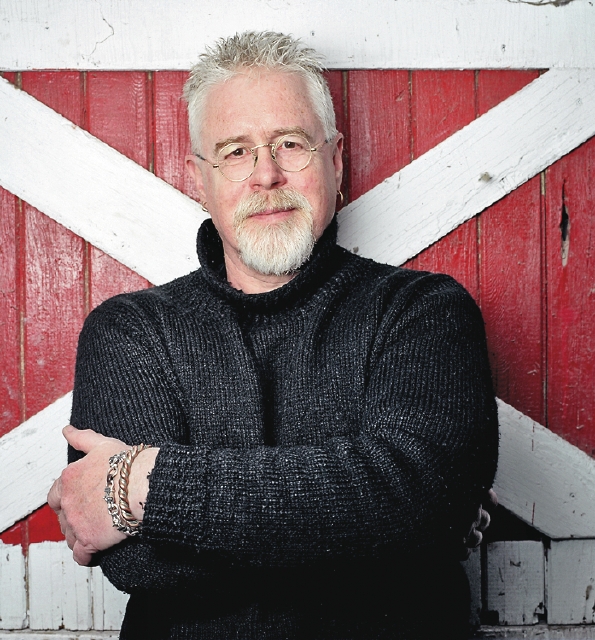Canadian singer-songwriter Bruce Cockburn has always had a penchant for the topical. The “big” issues–war, God, life and death–take center stage in his work, as much now as ever in his 30-odd-year career.Admittedly, his grown-up hippie aesthetic isn’t for everyone, despite the heap of accolades bestowed upon him by both the United States and Canadian music communities. But with more than 20 albums to his credit, lovers of folk, rock, reggae–hell, even new age organic tone poems–should find something worth lending an ear to. Cockburn deserves at least some credit for his tenacity. Aside from him, who else but perhaps only a celebrated, select few (Dylan, et al) have sung so much for so long about such universal themes?Here’s a brief rundown of the folk-jazz musician’s celebrated recording career: Bruce Cockburn , 1970: The artist finds himself ass-deep in the wilderness of hippiedom here, sporting spoken-word jams and freewheeling, north-of-the-border countryness. It’s worlds away from the exacting, God-fearing sound he’d later become known for and, while mediocre in light of his later work, this is a fitting–if slightly weird–intro to Cockburn’s catalog. In the Falling Dark , 1976: Cockburn took a break in the early ’70s, only to come back with this gem. It bolstered his reputation as a sensitive (bordering on frail), conscientious folkster with deft guitar-picking skills and mystical lyricism. It also helped establish Cockburn as one of Canada’s artistic national treasures. Yeah, they already had Neil Young then (who had released Zuma around the same time), but Cockburn’s sound felt Canadian and otherworldly, whereas Young had already been heavily marketed to American audiences. Dancing in the Dragon’s Jaws , 1979: This one showed Cockburn’s continued interest in worldbeat music, distinguishing him from his previous persona of a highly literate, and at times too inward-looking, guitar man. It also produced his first hit: “Wondering Where the Lions Are,” a reggaefied song that gained Cockburn international attention. Humans , 1980: Good for Cockburn that he’d scored a hit single on his last album, since Humans deserved all the attention he’d been previously denied. It’s perhaps the artist’s best work, of his early career anyway, and while dark, it’s also his most accessible. Stealing Fire , 1984: This one didn’t produce a hit, but it did piss off a lot of Cockburn’s Christian fans. “If I Had a Rocket Launcher,” a song that (like many others on this album) commented on the atrocities of war, particularly the U.S.-fueled violence in Central America at the time, caused a schism among those who liked the peace-loving, Jesus-worshipping side of Cockburn, and others who endorsed the political, fiery rhetoric that he’d revisit throughout the ’80s.Oh, “Rocket Launcher” also became an MTV hit, of sorts–something that hadn’t previously happened with Cockburn’s tunes. Live , 1990: As you can assume by the title, this is a live recording in which Cockburn fronts a power trio, playing songs from his then 20-year-old career. The hits are here, but what’s most interesting is the fact that Cockburn was at a stylistic crossroads, straddling the spiritual, intellectual and political themes of his career. Christmas , 1993: This one isn’t all that great, really, but it’s notable for Cockburn’s renditions of “Joy to the World” and the Spanish song “Riu, Riu, Chiu.” You’ve Never Seen Anything , 2003: Cockburn has by this point reached middle-age, and it’s more obvious than ever on this release. He gets members of Tom Waits’ band to play on this one, and enlists some A-list stars as well, including fellow contemporary folk-rockers Jackson Browne and Emmylou Harris. Lyrically, it’s acerbic and outspoken as ever, but without being too melodramatic. Life Short, Call Now , 2006: Cockburn continues his trend of releasing impeccably arranged, thoughtful songs, and this is one of the best. The fact is that most singers at this stage in their career are content with rehashing old material; Cockburn, however, has more fire than ever. He enlists a huge string section to accompany his 12-string guitar, complementing his songs about the Iraq war (fact: Cockburn visited the country during wartime) and the general shittiness and beauty of humanity.
Bruce Cockburn performs at the Eldorado Hotel Pavilion in Santa Fe on Sunday, Nov. 12. For more information, visit www.brucecockburn.com.

